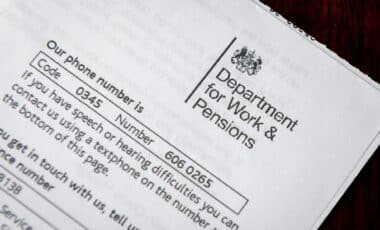A significant rise in the state pension, set to take effect on April 6, has raised concerns among millions of pensioners who may soon find themselves paying tax on their retirement income.
According to pensions expert Clare Moffat, around 12 million people will see their state pension increase to a level that brings them perilously close to the income tax threshold. This unexpected tax burden has the potential to catch many off guard, as many retirees do not realise that their pension is taxable.
This increase, part of the UK’s ‘Triple Lock’ system, promises a rise in the full State Pension to £12,014, which is not far from the current personal allowance of £12,570. As a result, retirees receiving the full pension will be at risk of crossing the tax threshold, depending on their additional sources of income.
The ‘Retirement Tax’ Trap
With the introduction of the new state pension increase, many pensioners are finding themselves at risk of a “retirement tax” trap. For those relying solely on their state pension, the additional income from the rise could push them into taxable territory, potentially affecting their finances.
According to Clare Moffat, nearly half of pensioners do not receive the full state pension, but the current increase could see some individuals unexpectedly liable for tax payments, particularly those with additional income.
Moffat explained that the rise in the state pension, brought about by the Triple Lock, is a growing concern. She cautioned that the full state pension is now nearing the income tax threshold. If the increase continues in future years, more and more pensioners could find themselves subject to tax, even if they have no other sources of income.
This is especially worrying for those who have delayed taking their state pension or have accumulated significant amounts in Additional State Pension.
Impact of Other Income Sources
For those with additional income streams, such as private or workplace pensions, the tax implications could be even more pronounced. Pensioners with a mix of income from multiple sources are likely to experience an increased tax burden, as their overall income may exceed the personal allowance.
Moffat suggests that pensioners could consider strategies to mitigate the impact of this rise, including adjusting their drawdown income if they are part of a defined contribution pension scheme.
For those with defined benefit schemes, where income amounts are fixed, the situation is less flexible, and the increase in state pension could lead to higher taxable income.
She also recommended that pensioners seek financial advice and explore options such as withdrawing smaller sums from tax-free ISAs to help offset the higher tax liability. This proactive financial planning could help reduce the overall impact of the new tax situation.









